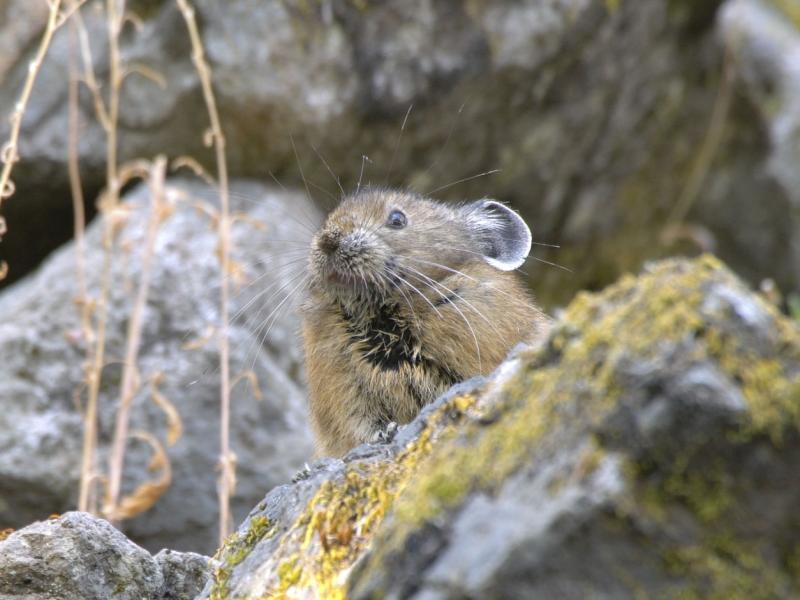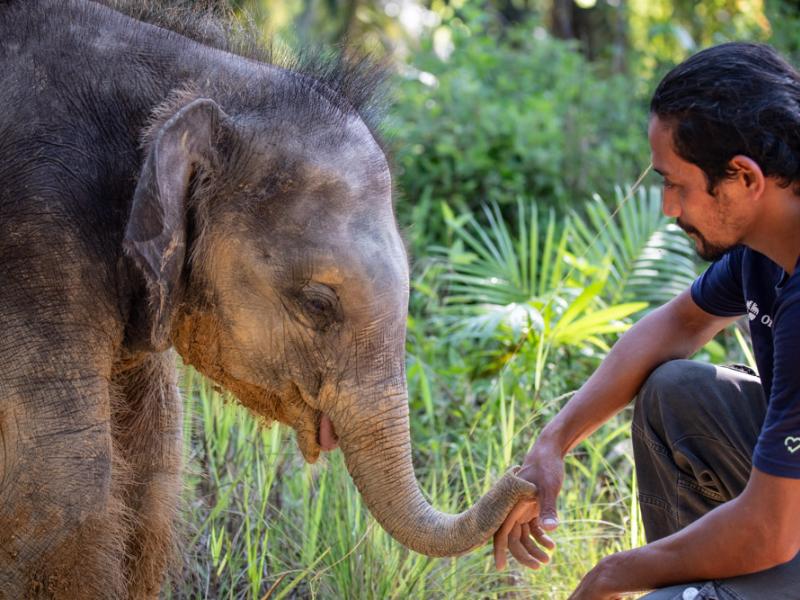Zoo to study Gorge pika populations after Eagle Creek Fire

$24K Forest Service grant will help gauge impact of historic blaze on Gorge pikas
Every summer, Cascades Pika Watch — a collaboration of organizations and individual pika researchers convened by the Oregon Zoo — hits the trails to monitor pikas in the Cascade mountain range. This year, thanks to a Citizen Science grant from the U.S. Forest Service, the group has a special mission: to see how pikas in the region are faring after last year's Eagle Creek Fire.
The $24,100 Citizen Science grant is one of four awarded earlier this month to fund efforts where partners, volunteers and the Forest Service work together in pursuit of sound science and meaningful community and volunteer engagement. The zoo's pika proposal was selected out of 168 qualified projects around the country.
"This grant provides us with an ideal opportunity to take action for wildlife," said Dr. David Shepherdson, Oregon Zoo deputy conservation manager. "In the wake of the Eagle Creek Fire, it's especially important that we collect data on our unique pika population."
American pikas are pint-sized mammals related to rabbits, known for their distinctive high-pitched calls. They're often found in rugged high-elevation mountain habitats, so pikas in the Columbia River Gorge are of particular interest because they live at a much lower elevation than any other pika population in the United States.
In 2017, the Eagle Creek Fire burned through much of the pika habitat on the Oregon side of the Columbia River Gorge. With the funds from the Citizen Science grant, Cascades Pika Watch will work closely with the Forest Service to conduct surveys and collect information to find out how fire affects pika habitat and potential trends in pika populations.
Cascades Pika Watch is now in its fourth year, and citizen scientists from around the region are invited to help. Since it began, the effort has trained more than 1,000 volunteers to conduct pika surveys throughout the Cascade range.
For this project, citizen scientists will work closely with the Forest Service to conduct pika surveys, collect additional habitat information and share data to understand which factors may be affecting pika populations. Most volunteers will "adopt" a subset of sites they can resurvey each season.
More News

Rescued cougar cubs are venturing out
A pair of orphaned cougar cubs, rescued and brought to the zoo by Washington Department of Fish and Wildlife staff in November, have begun exploring their outdoor habitat.April 17, 2025

Zoo seeks pika watchers for summer season
The Oregon Zoo is recruiting volunteers for Cascades Pika Watch.April 15, 2025

Zoo convenes action for imperiled elephants
Sabah government representatives joined conservation NGOs, local communities, palm oil producers, and tourism operators this week in the fight to save the world’s smallest elephants from extinction.April 11, 2025

